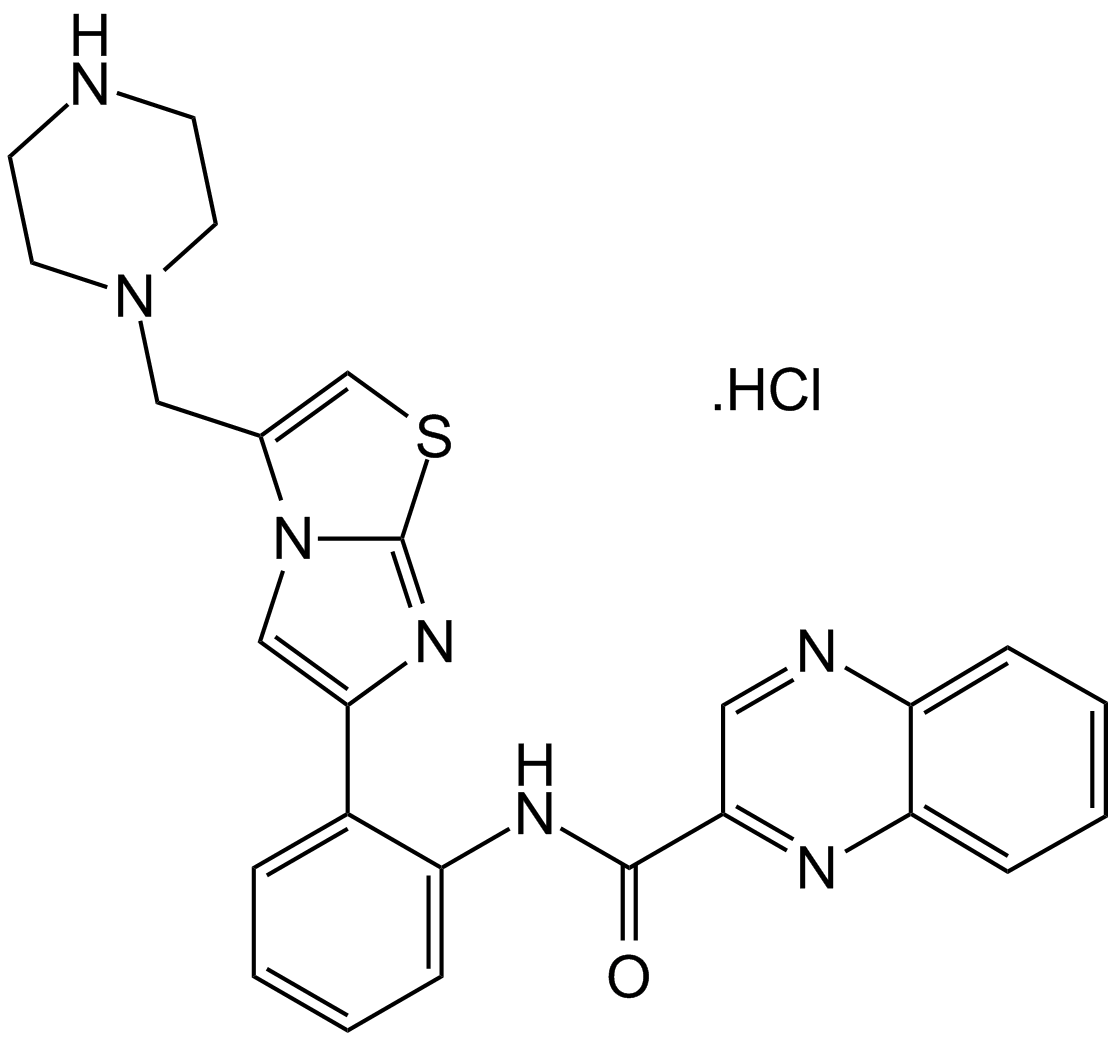SRT1720 HCl (Synonyms: SRT-1720,SRT 1720,SRT 1720 Hydrochloride) |
| Catalog No.GC17101 |
SRT1720 HCl is an activator of SIRT1 (EC1.
Products are for research use only. Not for human use. We do not sell to patients.

Cas No.: 1001645-58-4
Sample solution is provided at 25 µL, 10mM.
SRT1720 HCl is an activator of SIRT1 (EC1.5 = 0.16 µM and maximum activation = 781%) [1], a NAD+-dependent protein and histone deacetylase that plays an important role in numerous biologic processes [2]. SRT1720 HCl also inhibited p300 activity with IC50 of 9 µM [3].
SRT1720 HCl treatment decreased the expression of lipogenic genes in HepG2 cells [4]. The viability of MDA-MB-231 and BT20 basal-type breast cancer cells decreased by more than 80% with 5 µM of SRT1720 HCl, whereas the viability of MCF-7 luminal-type cells only decreased by 20% with 20 µM of treatment. After SRT1720 HCl (5 µM, 8h) treatment, 1% of the MDA-MB-231 cells were positive for early apoptosis and 12% of the cells were positive for late apoptosis/necrosis [2].
SRT1720 HCl (200 mg/kg for 10 wk) reduced fat accumulation in the liver and ameliorated liver dysfunction in MSG mice. The administration of SRT1720 HCl to MSG mice for 10 wk reduced fat accumulation by 21%. The serum levels of aminotransferases were also elevated in MSG mice. Administration of SRT1720 HCl improved dyslipidemia in MSG mice [4]. Administration of SRT1720 HCl (100 mg/kg) reduced fed glucose levels after 1 week of treatment that continued through 10 weeks of dosing in diet-induced obesity (DIO) mice [5].
References:
[1]. Milne J C, Lambert P D, Schenk S, et al. Small molecule activators of SIRT1 as therapeutics for the treatment of type 2 diabetes[J]. Nature, 2007, 450(7170): 712-716.
[2]. Lahusen T J, Deng C X. SRT1720 Induces Lysosomal-Dependent Cell Death of Breast Cancer CellsSRT1720 Induces Lysosomal-Dependent Cell Death[J]. Molecular cancer therapeutics, 2015, 14(1): 183-192. SRT1720 treatment decreased the expression of lipogenic genes in HepG2 cells.
[3]. Huber J L, McBurney M W, DiStefano P S, et al. SIRT1-independent mechanisms of the putative sirtuin enzyme activators SRT1720 and SRT2183[J]. Future medicinal chemistry, 2010, 2(12): 1751-1759.
[4]. Yamazaki Y, Usui I, Kanatani Y, et al. Treatment with SRT1720, a SIRT1 activator, ameliorates fatty liver with reduced expression of lipogenic enzymes in MSG mice[J]. American Journal of Physiology-Endocrinology and Metabolism, 2009, 297(5): E1179-E1186.
Average Rating: 5 (Based on Reviews and 30 reference(s) in Google Scholar.)
GLPBIO products are for RESEARCH USE ONLY. Please make sure your review or question is research based.
Required fields are marked with *




















